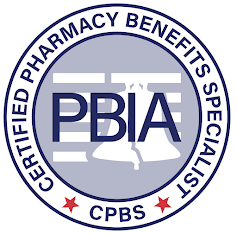5 ways to improve your PBM procurement process in 2024 and other notes from around the interweb:
- Federal mandates bring big lawsuit worries for health plan administrators. The Consolidated Appropriations Act of 2021, enacted on December 27, 2020, introduces significant new disclosure mandates for health plan providers, heightening the risk of substantial legal challenges. This Act amends the Employee Retirement Income Security Act of 1974, aiming to enhance transparency in employee health benefit plans. The implementation of various components of this law has been gradual, with compliance deadlines for certain sections only recently becoming due. Jennifer S. Berman, a seasoned employee benefits attorney and compliance consultant, emphasizes the surge in fiduciary responsibilities for sponsors of health and welfare plans. Three years into the enactment of the CAA, plan sponsors are diligently working to fulfill these newly imposed duties. This legislation represents more than a mere federal requirement for health plan administrators. It carries the potential for significant class-action lawsuits against plans that fail to comply with the updated legal requirements.
- 5 ways to improve your PBM procurement process in 2024. Many self-funded plan sponsors struggle to manage the cost of pharmacy benefits and rely on non-transparent contract guarantees to hold PBMs accountable. Meanwhile, drug spending continues to compound at an astonishing rate in defiance of the savings promised during the procurement process. As a former pharmacy program director for a plan covering more than 16,000 lives, I can tell you that it is possible to stop the “games” PBMs play, control costs, and ensure that all contractual guarantees are met, especially in scenarios where a PBM won’t guarantee an all-in per member per month (PMPM) cost for the year. Understanding the problem is a part of the solution, but making meaningful changes to the way plan sponsors and brokers evaluate PBMs is where the real opportunity lies.
- 3 thing to know about specialty pharmacy in 2024. Specialty drugs may be covered by a medical benefit (what patient-members likely think of as “their insurance”) or pharmacy benefits. There’s often a gray area for where specialty falls, but it can relate to whether the drug is being administered in a clinical setting, like a doctor’s office, outpatient clinic, or infusion center. Reimbursement for these drugs can also vary between average wholesale price (AWP) for pharmacy reimbursement and average sales price (ASP) for the medical benefit. It’s complex to compare, and both ASP and AWP are used in the health care industry, but they’re different. ASP is a government-regulated tool that uses manufacturer sales information including discounts, such as rebates. AWP is the average price that wholesalers sell drugs to pharmacies, prescribers, and others. A government report found the median percentage difference between ASP and AWP to be 49%.
- New limits on prior authorization hailed as good first step. New federal rules requiring health insurers to streamline requests to cover treatments are being hailed as a good first step toward addressing a problem that’s increasingly aggravated patients and doctors. Health insurers will have to provide coverage decisions on urgent treatment requests within 72 hours for patients in Medicare Advantage, Medicaid or Affordable Care Act plans under federal rules finalized Wednesday. The deadline is seven days for non-urgent requests. Insurers’ requirements for their sign-off on some physician-ordered care is a major tension point with providers and has faced recent scrutiny from Congress. The new protocols, which largely take effect in 2026, may cut the review process in half for some insurers.
